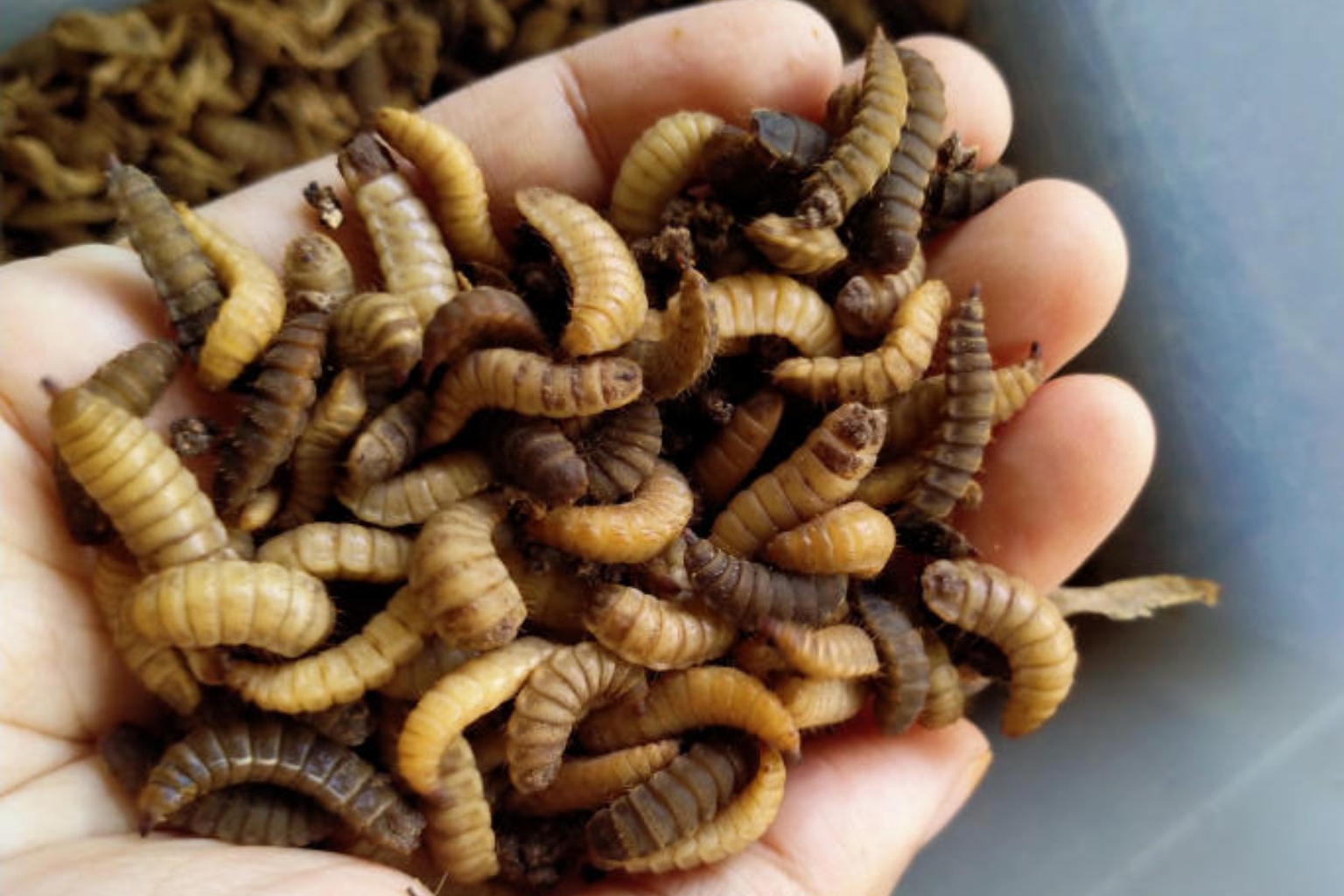S'porean team developing bacteriophages as antibiotic replacement in black soldier fly protein
Sign up now: Get ST's newsletters delivered to your inbox

The fly larvae has the ability to coexist with a bacterial predator: bacteriophages.
PHOTO: NUTRITION TECHNOLOGIES
SINGAPORE - Black soldier fly larvae not only munch up waste, but they also transform their bodies into valuable animal feed.
A Singapore team is finding ways to supercharge these larva protein packets with antimicrobial qualities.
Animals such as chickens and fish fed this diet could get better protection against an array of bacterial infections - without the need to administer antibiotics.
The secret to this lies in the fly larvae's ability to coexist with a bacterial predator: bacteriophages.
Bacteriophages are viruses that prey on bacteria to convert them into factories to proliferate their genetic material.
Chief technological officer Martin Zorrilla of Nutrition Technologies, the company keen on incorporating phages into insect protein, said this ability comes from the fly's role in the food chain as a decomposer that thrives in potentially biohazardous environments.
"To thrive in their natural environments such as manure or even carcasses, the flies must have a very special relationship with microbes," said Mr Zorrilla who works at the firm that specialises in soldier fly products.
By virtue of their need for microbes to decompose, he added that the flies have evolved to coexist with these microbes within them, from bacteria to bacteriophages.
This, he noted, makes them ideal carriages for bacteriophages as antibiotic replacements.
Funded by The Singapore National Biofilm Consortium, an agency that dispenses grants for collaborations between industry and microbial academic research, the proof-of-concept project is currently being conducted between Nutrition Technologies and National University of Singapore microbiology and immunology scientist Wilfried Moreira.
The latter said the idea came, in part, because the rampant use of antibiotics in farm animals was contributing to the global issue of antibiotic-resistant bacteria.
According to the Natural Resources Defence Council, an international environmental non-profit organisation, around 65 per cent of medically important antibiotics sold in the United States are used in farmed animals.
Though antibiotics have been used to keep these animals healthy and keep farm yields high, Dr Moreira said such indiscriminate use can end up selecting for bacteria that are resistant.
"Taking an antibiotic to kill a harmful bacteria is the equivalent of carpet bombing a town to take out a single enemy," he added.
This can also lead to wiping out healthy and protective natural microbial life and also potentially provide a blank and fertile slate for harmful bacteria to colonise completely.
Drawing a comparison, he added: "Bacteriophages are more like special force troops or snipers that take out specific bacteria."
He attributed this selectivity to the co-evolution between bacteriophages and their specific prey bacteria.

As a result of this selectivity, Dr Moreira said bacteriophages target only their bacteria and are harmless to human cells.
The study began in January this year and the first stage is slated to end by 2023, although the collaboration is expected to continue. Nutrition Technologies plans on incorporating bacteriophages into its fly protein in two to three years.
While these bacteriophages will initially target poultry-related infections, Mr Zorrilla hopes to tap them to fight bacteria in other animals, like fish.
"The cool thing here is that we have two entities that we would normally consider as our foes - insects and viruses - working together for our benefit," he said.


